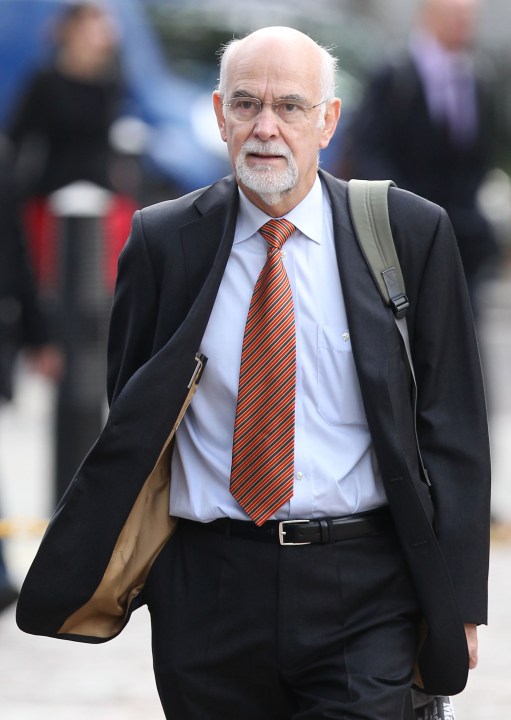As the cops round up journalists, Trevor Kavanagh’s protest in the Sun has aroused amazement and some scorn. ‘Witch-hunt has put us behind ex-Soviet states on Press freedom’ — ran the headline, and the gist of the complaint among my friends was that it was a self-pitying and self-aggrandising piece of work.
Whatever you think of the Sun or Kavanagh, however, it is worth hearing him out for three reasons.
1. Kavanagh is being brave. We ought to applaud Hugh Grant for standing up to the tabloids even though he knows they will give him a bad press for the rest of his career. (You will
have noticed that nearly everyone else in the celeb pack has let Grant and a few others fight their battles for them while they cower in a prudent silence.) Similarly, we ought to applaud Kavanagh
for standing up to his employers — something hardly any journalist or politician has done since Mrs Thatcher’s day.
His article is a barely coded protest against his proprietors. To save their hides, Rupert and James Murdoch closed the News of the World last year. Now they are handing evidence to the police that detectives can use to prosecute Sun reporters. Their disloyalty is staggering. Murdoch’s employees bowed and scrapped before him, parroted his political prejudices, and sneaked and hacked to fuel his profits. Their rewards are the dole office and the police cell. Murdoch won business favours from politicians by bribing them with propagandistic coverage. Having taken all he could, he dumped them when they were no use to him. He is giving the same treatment to his journalists.
We all like to pretend that we would behave like brave dissidents if circumstances demanded. But when our employers behave in ways they should not, how many confront them? You do not need to
believe that the Sun is much of a newspaper to admire Kavanagh for speaking up. Like Labour and Tory politicians before him, he has learned the wisdom of the Psalmist’s warning to ‘put
not your trust in princes’.
2. Reporters have been paying officers of the law since pamphleteers took night watchmen to taverns to find out about the crimes of Georgian London. Kavanagh is right to say that
the dawn raids by dozens of officers are an excessive response. He might have added that both the police and the politicians are anxious to divert attention from their corrupt relationships with
Murdoch’s businesses by turning on its underlings. My worry about Lord Justice Leveson’s inquiry is that it will be a similar diversionary exercise on a far grander scale.
3. When Kavanagh says that a ‘witch-hunt has put us behind ex-Soviet states on Press freedom’ he’s right. Britain is falling down the Reporters Without
Borders’ World Press Freedom Index. The Paris-based free speech organisation was concerned about the judge-made privacy
law, the police seizing of material from social network sites after the riots, and a ‘surreal’ libel law that ‘despite universal condemnation’ allows the ‘entire
world’ to come to sue in London. Reporters Without Borders ranks Britain 28th in the world behind the former Soviet territories of Poland, Estonia and Slovakia. Such is the state of liberty
in our country.
You can read an extract from my book on what is wrong with libel in the Observer here. I wrote too about the justifiably notorious Twitter Joke trial on Sunday.
The point I need to emphasise is that libel, privacy and all the other laws covering freedom of the press affect everyone who writes online. London’s rapacious libel lawyers use Google and Google Alert to track down every unfavourable mention of an oligarch on every blog however small. Twitter means that a man joking about how desperate he is to see his girlfriend can end up in the dock and out of work. When Kavanagh and I began as reporters, we used to say that journalism was not a profession but a trade. Journalists were merely citizens with typewriters rather than members of an elite. That was true in theory, but false in practice. Most citizens could not be reporters unless a media company hired them. Now the only difference between us and everyone who blogs, self-publishes, runs a website or spreads news and opinions via Twitter and Facebook is a difference of scale.
We are all journalists now. Or we can all be journalists if we want to be. Increasingly freedom of the press in Britain affects the many, not just a handful of newspapers and broadcasting channels. When the Leveson feeding frenzy is over, you may find that it is not only the freedoms of Trevor Kavanagh the establishment has constrained, but your freedoms too.








Comments